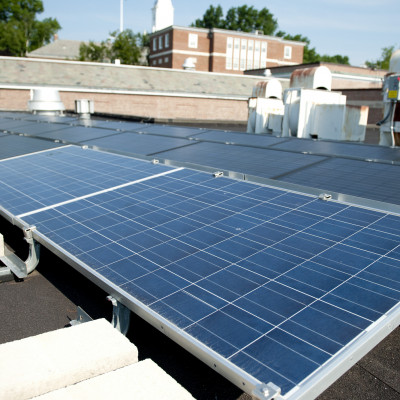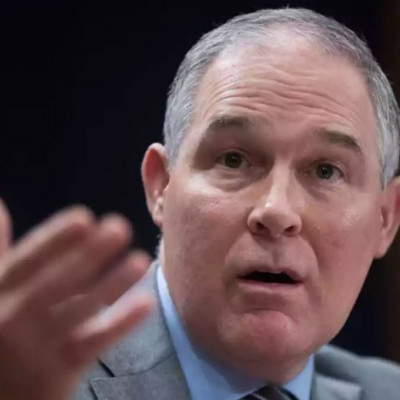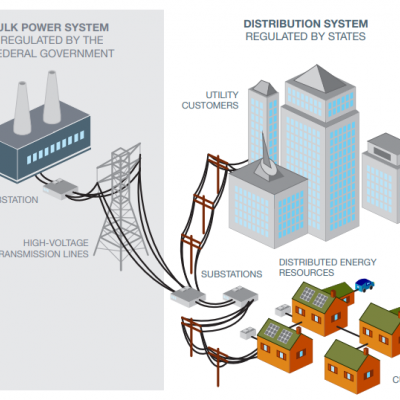March 31, 2018
March 2018 at Policy Integrity:
- Litigation on DACA, Car Standards, Coal Leasing, and Zero-Emissions Credits;
- Valuing Pollution Reductions – New Report;
- How the Trump Administration Is Obscuring the Costs of Climate Change;
- Helping California Improve Energy Decisionmaking;
- Public Comments on Energy, Climate, and Health Care;
- New Articles on Monuments, Fossil Fuel Leasing, Energy Storage, and Public Comment Process;
- In the News: Scott Pruitt and Climate Skepticism
-

Litigation on DACA, Car Standards, Coal Leasing, and Zero-Emissions Credits
This month, we submitted briefs in major cases on immigration policy, fuel-economy standards, coal leasing, and New York State climate policy.
In our brief opposing rescission of the Deferred Action for Childhood Arrivals Program, we argue that the Trump administration’s “litigation risk” rationale for terminating DACA was irrational.
Our brief in a case challenging the administration’s delay of penalty increases for car manufacturers’ non-compliance with fuel economy standards argues that this delay harms the public by removing incentives for fuel efficiency, thus increasing air pollution and damages from climate change.
Our brief in a challenge to the Forest Service’s expansion of Colorado’s West Elk Coal Mine argues that the agency must monetize climate damages to make the project’s impacts transparent. Merely acknowledging that expanded coal production will increase greenhouse gas emissions is not enough to satisfy National Environmental Policy Act requirements.
Our brief defending New York State’s Zero-Emissions Credit Program argues that the state’s use of the Social Cost of Carbon as the basis for its pricing is just and reasonable.
-
Valuing Pollution Reductions – New Report and Working Group
Distributed energy resources, such as rooftop solar installations and energy storage systems, can help avoid greenhouse gases and local air pollution produced by fossil-fuel-fired energy sources. Our new report shows how state electric utility regulators can calculate the types and amount of pollution these technologies help avoid, and then monetize these benefits for use in policy. We have presented this methodology in New York State’s proceeding on the Value of Distributed Energy Resources. Our Energy Policy Director, Burcin Unel, is leading a group of stakeholders working to quantify and monetize environmental externalities, which New York could use in its new compensation system for distributed energy resources.
-
How the Trump Administration Is Obscuring the Costs of Climate Change
When federal and state policymakers account for the impacts of climate change, they regularly use the Social Cost of Carbon (SCC) to monetize the impacts of climate change. Our new issue brief charts how the Trump administration is manipulating federal estimates of the costs of climate change from $51 per ton of carbon dioxide to as little as $1 per ton, and using this problematic calculation to justify deregulatory actions. We also explain why federal agencies and state governments should continue using the most recent estimate by the Interagency Working Group that developed the SCC.
-

Helping California Improve Energy Decisionmaking
California has long set national trends on clean energy policy, and our input helped inform the state’s new approach for evaluating distributed energy resources (DERs), such as rooftop solar installations. Our comments were heavily cited in a recent administrative law judge ruling that, if approved by the California Public Utilities Commission, would require utilities to quantify the environmental benefits of DERs as part of a societal cost test. Having been “persuaded by the arguments of the Institute for Policy Integrity,” the ruling would make utilities calculate the climate benefits of DERs by using the Interagency Working Group’s Social Cost of Carbon estimate, while also quantifying the air quality impacts of DERs.
-

Public Comments on Energy, Climate, and Health Care
In recent public comments to a number of federal and state agencies, we address policy proposals on oil and gas development, energy efficiency standards, climate policy, and access to healthcare.
Comments on Interior’s Offshore Oil and Gas Leasing 2019-2024 Draft Proposed Program
Comments on Use of the Social Cost of Greenhouse Gases in Environmental Impact Statements
Comments on Department of Energy’s Energy Conservation Standards Program
-

New Articles on Monuments, Fossil Fuel Leasing, Energy Storage, and Public Comment Process
In the wake of the Trump administration’s move to shrink multiple national monuments, our Policy Director, Jayni Hein, has published an article arguing that the presidential powers to designate national monuments and withdraw areas from offshore oil and gas leasing operate in one direction only: towards preservation. Hein reviews relevant statutes, constitutional provisions, legislative history, and the public trust doctrine to argue that Congress, alone, has the authority to reverse or diminish these designations.
In another article, Hein outlines how federal agencies can maximize social welfare in federal energy leasing by adjusting the fiscal terms of coal, oil, and natural gas leases. She argues that agencies can and should account for all of the costs and benefits of leasing—including environmental and social costs—and adjust the fiscal terms of fossil fuel leases, such as royalty rates, to recoup unmitigated externality costs.
Richard Revesz and Burcin Unel also recently published an article questioning the assumption that increasing the use of energy storage will automatically reduce greenhouse gas emissions. They explore situations in which energy storage systems can lead to increased emissions, and they offer reforms to correct for these poor incentives while ensuring energy storage systems can provide the maximum benefit possible to the grid.
Michael Livermore co-authored an article on how natural language processing technology could improve regulatory decisionmaking by helping federal agencies better process the input in public comments.
-

In the News: Scott Pruitt and Climate Skepticism
In the New Yorker’s recent profile of Scott Pruitt, Jayni Hein and Bethany Davis Noll discuss how the Environmental Protection Agency under Pruitt is skirting the law to delay environmental protections.
In an op-ed for the Hill, Richard Revesz commended the decision to cancel Pruitt’s “red team-blue team” debate on climate change science. Revesz states that this type of debate “would have undermined, rather than increased, public understanding of a critical issue.”

